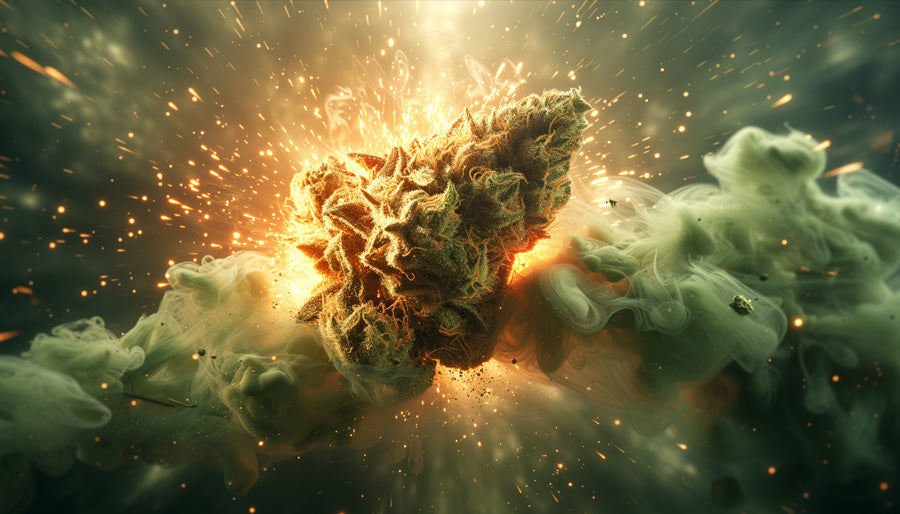
The world has witnessed a remarkable surge in interest surrounding cannabinoids and their potential health benefits. Among the many compounds found in the cannabis plant, tetrahydrocannabinolic acid (THCA) has become a fascinating subject of research and discussion. Despite being often overshadowed by its more famous counterparts like CBD and THC, THCA possesses unique properties and therapeutic potential that are worth exploring.
Understanding THCA:
THCA, or tetrahydrocannabinolic acid, is a precursor to THC (tetrahydrocannabinol), the psychoactive compound primarily responsible for the "high" associated with cannabis consumption. Unlike THC, THCA is non-intoxicating, meaning it does not produce psychoactive effects in its raw form.
How is THCA Produced?
THCA is abundantly present in raw, unheated cannabis plants. It's produced in the glandular trichomes of the plant, where cannabinoids are synthesized. Through a process called decarboxylation, THCA is converted into THC when exposed to heat or sunlight. This is why dried or heated cannabis, through smoking, vaping, or cooking, will convert THCA into THC, resulting in its psychoactive effects.
Potential Benefits of THCA:
While research into THCA is still in its early stages, preliminary studies suggest that it may offer a range of potential health benefits:
- Anti-inflammatory Properties: THCA has demonstrated anti-inflammatory effects, which could make it a promising candidate for managing conditions such as arthritis and autoimmune disorders.
- Neuroprotective Effects: Some research indicates that THCA may possess neuroprotective properties, offering potential benefits for neurological conditions like Parkinson's disease and multiple sclerosis.
- Anti-nausea and Antiemetic Properties: THCA has shown promise as an antiemetic, making it potentially beneficial for alleviating nausea and vomiting, particularly in cancer patients undergoing chemotherapy.
- Appetite Stimulation: Like THC, THCA may stimulate appetite, making it potentially useful for individuals experiencing appetite loss due to medical conditions or treatments.
Comparing THCA to CBD, THC, and THCV:
CBD (Cannabidiol): CBD has gained widespread attention for its various therapeutic properties, including its potential to reduce anxiety, alleviate pain, and improve sleep. Unlike THC, CBD is non-intoxicating and does not produce psychoactive effects. While both CBD and THCA are non-intoxicating, they interact with the endocannabinoid system in different ways.
THC (Tetrahydrocannabinol): THC is the primary psychoactive compound in cannabis, responsible for the euphoric "high" commonly associated with marijuana use. In contrast, THCA does not produce intoxicating effects until it is converted to THC through decarboxylation. While THC has its own therapeutic properties, such as pain relief and appetite stimulation, its psychoactive effects may limit its appeal to certain individuals.
THCV (Tetrahydrocannabivarin): THCV is a cannabinoid that shares a similar molecular structure with THC but produces different effects. Unlike THC, THCV is believed to act as an appetite suppressant and may have potential in weight management and glucose control.
The Future of THCA Research:
As interest in cannabis compounds continues to grow, so does the need for further research into the potential therapeutic benefits of THCA. While early findings are promising, more clinical studies are necessary to fully understand its mechanisms of action and therapeutic applications. Additionally, exploring synergies between THCA and other cannabinoids, as well as their interactions with the endocannabinoid system, could unlock new possibilities for medical treatment and wellness.
THCA represents a fascinating area of exploration within the realm of cannabis science. With its non-intoxicating nature and potential health benefits, THCA offers a unique alternative for individuals seeking natural remedies for various ailments. As research progresses, we may uncover even more reasons to appreciate the hidden potential of this intriguing cannabinoid.

